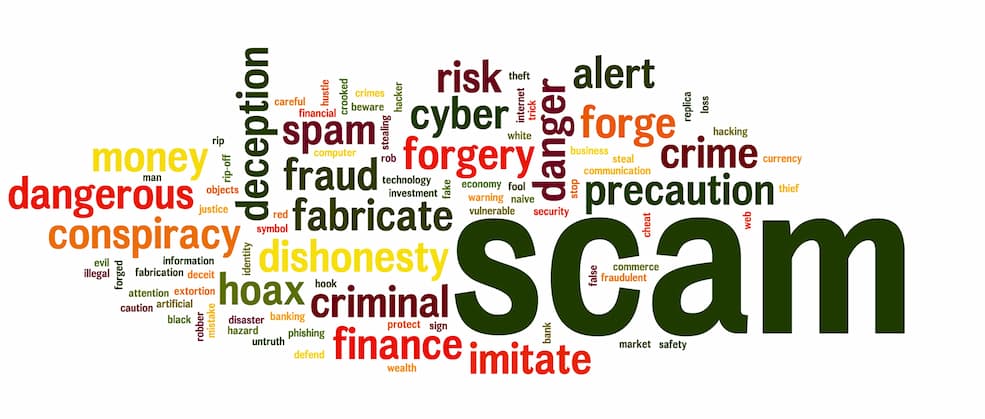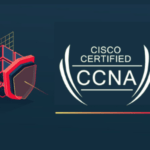Hacking Technology Training in Delhi | Hacking Course

Hacking Technology Training in Delhi | Hacking Course
Hacking Technology Training in Delhi
Are you wondering where you could get the best Hacking Technology Training in Delhi? If yes, then you are at the right place. In this amazing article, we will tell you about various benefits related to hacking technology skills and the trusted training institute offering the mentioned Training.
Moreover, you will learn about how these skills benefit organizations by improving & enhancing their security measures against online threats. What are we waiting for? Let’s get straight to the topic!
What is Hacking Technology?
Tools, strategies, and tactics used to obtain unauthorized access to networks, systems, or data are referred to as hacking technology. It can be used to find and address vulnerabilities for either malevolent (black hat hacking) or moral (white hat hacking) reasons.
It requires knowledge of cryptography, network exploitation, and coding. The Hacking Technology Training in Delhi can be super beneficial for the future growth of the aspirants. Let’s get forward!

Types of Hacking
The following are the types of hacking:
- Black Hat Hacking: Malicious hacking that aims to damage systems, steal information, or cause disruptions.
- White Hat Hacking: Authorized ethical hacking is done to find and address vulnerabilities.
- Gray Hat Hacking: A combination of white hat and black hat hacking, frequently involving unapproved access but without malevolent intent.
- Script Kiddies: Hackers with little expertise who launch attacks using easily accessible tools and scripts.
- Hacktivism: Hacking with social or political motivations.
- State-Sponsored Hacking: Hacking actions carried out by or for governments.
- Cyberterrorism: The malicious or disruptive use of computers and the internet for ideological or political purposes.
- Phishing: Using misleading emails or messages to trick people into disclosing private information.
- Social Engineering: Manipulating others to carry out tasks or reveal private information.
- Malware Attacks: Utilizing malicious software (malware) to steal data and infect systems.
- Denial-of-Service (DoS) Attacks: Flooding a target network or system with traffic, preventing authorized users from accessing it.

Ethical Hacking vs. Malicious Hacking
| S.No. | Factors | Topics | Why? |
| 1. | Authorization | Ethical Hacking | The owners of the system or network give ethical hackers express permission to operate. |
| Malicious Hacking | Malevolent hackers operate without permission. | ||
| 2. | Intent | Ethical Hacking | The goal of ethical hackers is to find and address security flaws. |
| Malicious Hacking | Malicious hackers aim to take advantage of weaknesses for their gain or other nefarious objectives. | ||
| 3. | Legality | Ethical Hacking | Contracts and ethical standards frequently regulate ethical hacking, which is a lawful practice. |
| Malicious Hacking | Malicious hacking is prohibited and carries serious legal repercussions. | ||
| 4. | Impact | Ethical Hacking | The goal of ethical hacking is to increase security and reduce harm. |
| Malicious Hacking | Data breaches, monetary losses, and reputational harm are just a few of the serious consequences that malicious hacking can bring about. | ||
| 5. | Motivation | Ethical Hacking | The goal of enhancing security and safeguarding systems motivates ethical hackers. |
| Malicious Hacking | Greed, retaliation, or other malevolent motives are frequently the driving forces behind malicious hacking. |
Importance of Learning Hacking Technology
Following are some of the factors stating the importance of learning hacking technology:
- Enhanced Cybersecurity: You can find and fix weaknesses in networks and systems, increasing their resistance to malevolent attacks, by mastering ethical hacking techniques.
- Increased Job Opportunities: There are many career options in cybersecurity, including penetration testing, security consulting, and threat intelligence analysis, due to the high demand for ethical hacking skills across a variety of industries.
- Improved Problem-Solving Skills: Gaining knowledge of ethical hacking enhances analytical, problem-solving, and critical thinking abilities that are useful in a variety of domains outside of cybersecurity.
- Enhanced Technological Understanding: It offers a more thorough comprehension of the advantages and disadvantages of computer networks and systems.
- Personal Security: Gaining knowledge of common hacking techniques will help you better defend your data and yourself against online threats.
- Contributing to a Safer Digital World: Because they assist organizations in identifying and mitigating vulnerabilities, ethical hackers are essential to enhancing the general security of the digital world.
Types of Hacking Technology Training Available in Delhi
Following are some of the Hacking Technology Training Available in Delhi:
- CompTIA Security+: Fundamental cybersecurity certification that covers a lot of ground.
- Certified Ethical Hacker (CEH): Focuses on methods and strategies for ethical hacking.
- Certified Information Systems Security Professional (CISSP): Advanced certification for experienced and well-versed security professionals.
- Offensive Security Certified Professional (OSCP): Highly esteemed certification in practical penetration testing.
- Certified Information Security Manager (CISM): Focuses on the management and governance of information security.
- Certified Information Systems Auditor (CISA): Focuses on business and IT system security, control, and auditing.
Importance in the modern tech landscape
| S.No. | Factors | Why? |
| 1. | Proactive Vulnerability Identification | Organizations can find and fix security flaws before malevolent actors can take advantage of them thanks to ethical hacking. |
| 2. | Enhanced Security Posture | Ethical hacking helps create a more secure and robust IT infrastructure by proactively detecting and reducing risks. |
| 3. | Compliance with Regulations | Organizations can adhere to a variety of security standards and regulations by using ethical hacking. |
| 4. | Cost Savings | Finding and fixing security flaws after a breach can be expensive. These expensive incidents can be avoided with ethical hacking. |
| 5. | Improved Decision-Making | Making educated decisions about security investments is made possible by ethical hacking, which offers insightful information about an organization’s security posture. |
| 6. | Enhanced Security Awareness | Employee awareness of security best practices can be increased through the ethical hacking process. |
| 7. | Competitive Advantage | An organization can gain a competitive edge by improving its reputation and fostering trust with stakeholders and customers through a robust security posture. |
| 8. | Innovation in Cybersecurity | By continuously pushing the limits of security research and development, ethical hacking stimulates innovation in the field of cybersecurity. |
| 9. | Protection of Critical Infrastructure | Ethical hacking is essential for safeguarding vital infrastructure in today’s networked world, including financial institutions, transportation networks, and power grids. |
| 10. | National Security | By assisting in the defense against cyberattacks by foreign adversaries, ethical hacking enhances national security. |
Why Choose Delhi for Hacking Technology Training?
You can choose Delhi for hacking technology Training considering the following factors:
- Hub of Educational Institutions: Delhi is home to numerous esteemed educational establishments, such as colleges, universities, and training facilities, that provide specialized Training in ethical hacking, cybersecurity, and related subjects.
- Access to knowledgeable faculty and high-quality education is made possible by this diverse ecosystem.
- Industry Exposure: With a flourishing tech sector, Delhi is a significant IT hub. Excellent opportunities for internships, placements, and industry networking are provided by this proximity to top IT companies, startups, and cybersecurity firms.
- Research and Innovation: In Delhi, a large number of research institutes and labs are actively engaged in cybersecurity research and development. This promotes innovation in the field and creates a dynamic learning environment.
- Government Initiatives: Cybersecurity awareness and initiatives are being actively promoted by the Indian government. As the capital, Delhi is leading the way in these efforts, giving students lots of chances to participate in events and programs supported by the government.
- Vibrant Learning Environment: Delhi’s diverse student body and cosmopolitan culture foster an active and engaging learning environment. Your knowledge of cybersecurity issues and solutions may increase as a result of this exposure to various viewpoints and concepts.

Key Features of Good Hacking Technology Training
Here are the key features of good hacking technology Training:
- Comprehensive Curriculum: Covers every important facet of cybersecurity, including social engineering and network security.
- Covering fundamentals to advanced topics: Begins with fundamental ideas and works its way up to more complex methods like malware analysis and penetration testing.
- Hands-on experience with real-world scenarios: Incorporates labs, simulations, and practical exercises to provide hands-on experience in a safe setting.
- Certification and Placement Assistance: Offers certifications accepted by the industry and offers advice on how to prepare for interviews and find a job.
- The importance of global recognition: Guarantees that employers around the world will accept and value the training and certifications.
Role of Hacking Technology in Protecting Businesses from Cyber Threats
| S.No. | Roles | What? |
| 1. | Vulnerability Identification | To find vulnerabilities in a company’s networks and systems before malevolent actors take advantage of them, ethical hackers can mimic attacks. |
| 2. | Risk Assessment | Businesses can evaluate their overall security posture and set priorities for mitigation efforts by using ethical hackers’ knowledge of potential threats. |
| 3. | Security Enhancement | Security measures like firewalls, intrusion detection systems, and encryption protocols can be strengthened with the help of the knowledge obtained from ethical hacking. |
| 4. | Incident Response Planning | To make sure the company is ready to manage a cyberattack successfully, ethical hackers can assist in creating and testing incident response plans. |
| 5. | Employee Training | Employees can receive security awareness training from ethical hackers, which will teach them about common threats and best practices for safeguarding confidential data. |
| 6. | Compliance | Businesses can adhere to industry rules and guidelines regarding data security and privacy by using ethical hacking. |
| 7. | Competitive Advantage | Businesses can obtain a competitive advantage and win over clients and partners by showcasing a strong commitment to cybersecurity. |
| 8. | Innovation | By creating new tools and strategies to counter new threats, ethical hacking can spur innovation in cybersecurity. |
How to Choose the Right Training for You?
Following are some of the ways to choose the right hacking technology Training for you:
- Career Goals: Describe your desired career path. Do you want to work as a cybersecurity consultant, penetration tester, security analyst, or in another capacity?
- Learning Style: Think about the way you prefer to learn. Do you learn best in an online environment, in a classroom, or in practical labs and workshops?
- Course Structure and Content: Examine the training syllabus thoroughly. Make sure it addresses the particular facets of cybersecurity that correspond with your hobbies and professional objectives.
- Instructor Expertise and Reputation: Examine the instructors’ backgrounds. Seek out instructors who have a solid reputation for teaching and practical industry experience.
- Cost and Return on Investment: Examine the possible return on investment and compare the cost of the courses. Take into account the price of certifications, employment opportunities, and prospective pay raises.

Challenges in Learning Hacking Technology
| S.No. | Challenges | What? |
| 1. | Rapidly Evolving Threat Landscape | Because cyber threats are constantly evolving, learning and adaptation must be ongoing. |
| 2. | Technical Complexity | It can be difficult to grasp the technical nuances of cybersecurity concepts and tools. |
| 3. | Ethical Considerations | Negotiating the moral limits of ethical hacking and making sure that legal frameworks are followed. |
| 4. | Resource Constraints | Learning can be hampered by a lack of access to resources such as practice settings, tools, and current knowledge. |
| 5. | Staying Updated | Continuous skill development is necessary due to the constant emergence of new technologies and attack vectors. |
| 6. | Finding Quality Learning Resources | Finding trustworthy and useful educational resources can be difficult and time-consuming. |
| 7. | Maintaining Motivation | Maintaining motivation can be challenging due to the intricacies of cybersecurity and the possibility of frustration. |
| 8. | Job Market Competition | Because the cybersecurity industry is so competitive, standing out requires a strong portfolio and ongoing skill development. |
Why is Delhi becoming a hub for hacking technology Training?
Due to the following reasons, Delhi is becoming a hub for hacking technology Training:
- Presence of Top-Tier Institutions: There are many well-known universities, colleges, and training facilities in Delhi that focus on ethical hacking and cybersecurity.
- Thriving IT Industry: Delhi, a significant center for IT, provides a wealth of industry exposure, internships, and possible employment opportunities in the cybersecurity field.
- Government Focus: Delhi, the nation’s capital, is leading the charge on cybersecurity initiatives that the Indian government is aggressively supporting.
- Research and Innovation: Delhi is home to numerous research institutes and labs that are actively engaged in cybersecurity research, creating a vibrant atmosphere for education and creativity.
- Vibrant Learning Ecosystem: Aspiring cybersecurity professionals can learn in an exciting environment thanks to Delhi’s multicultural student body and cosmopolitan culture.
Career Opportunities After Completing a Hacking Technology Training
Following are some of the career opportunities after completing hacking technology Training:
- Penetration Tester,
- Security Analyst,
- Cybersecurity Consultant,
- Security Engineer,
- Forensic Investigator,
- Ethical Hacker,
- Security Architect,
- Compliance Analyst,
- Threat Intelligence Analyst, and
- Security Researcher.
Frequently Asked Questions
About the Hacking Technology Training in Delhi
1. What is the duration of a typical hacking technology training?
Hacking technology courses can range widely in length, from intensive degree programs (2-4 years) to short-term certifications (a few weeks).
2. Are there any free hacking trainings available in Delhi?
Yes, there are free or inexpensive introductory training and workshops on cybersecurity and ethical hacking available at a few Delhi-based universities, colleges, and organizations.
3. Do these courses guarantee job placement?
No, even though a lot of courses help students find jobs, this is not a guarantee.
4. Can a beginner enroll in hacking technology training?
Yes, if you get in contact with Craw Security, you can enroll for the Hacking Technology training in Delhi as a beginner with ease.
5. What certifications are recognized globally?
Following are some of the certifications recognized globally related to hacking technology:
- CompTIA Security+,
- Certified Ethical Hacker (CEH),
- Certified Information Systems Security Professional (CISSP),
- Offensive Security Certified Professional (OSCP),
- GIAC Penetration Tester (GPEN),
- Certified Information Security Manager (CISM), and
- Certified Information Systems Auditor (CISA).
Conclusion
Now that you have learned about how beneficial the Hacking Technology Training in Delhi will be for you if you join it, you can move further and get in contact with a trusted institute that is reassuring the best learning environment.
One of the most reliable training institutes is Craw Security, offering Hacking Technology Training in Delhi under the supervision of professionals who have experience in using the latest hacking technology on live machines via virtual labs introduced on the premises of Craw Security.
After the completion of the Hacking Technology Training in Delhi offered by Craw Security, students will get a certificate validating their honed knowledge & skills during the sessions. What are you waiting for? Contact, Now!
















